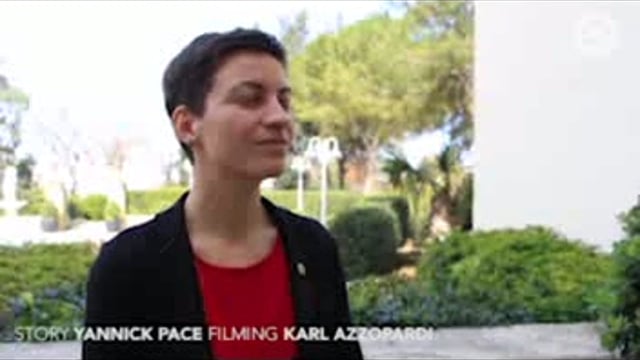[WATCH] Europe will have to choose either nationalism or progressive values, Green Party lead MEP candidate says
One of the European Greens’ two lead candidates, Ska Keller, said Europe is at a cross-roads and that the upcoming elections would require a choice between erecting borders and a Europe that works for everyone


The upcoming MEP elections will see Europe choose between regressive nationalist policies and values the European Union was founded on, according to German MEP and Green Party lead candidate Ska Keller.
“These European elections are going to be crucial because they are going to determine the direction Europe will be moving in,” Keller told MaltaToday. “We see forces that want to take us back to nationalism, to erect borders and divide Europe. This is not the way forward.”
Keller is currently in Malta as a part of a tour of European Member states ahead of this May’s elections, where she held a press conference on her party’s proposals for the election together with representatives of Alternattiva Demokratika.
She said that while the established parties in Europe were “advocating for everything to continue on the way it is”, the Green Party was saying that EU needs to change in a way that can see it fulfil its promises to everyone in Europe.
The next challenge for the EU, Keller said, was to seriously address matter of social justice.
“We have rules on how much a state can spend but we don’t have any binding roles on social targets,” she said, adding that it was crucial for this to change.
This, she said, included ensuring adequate minimum wage levels, citizens’ access to health insurance and the promotion of education among others. “The next level for the European Union is to have these types of social targets.”
On climate change, which is also one of the party’s main priorities, Keller stressed that this had now also become a social issue.
“Poorer people tend to be the worst affected by air pollution and extreme weather events,” she said, adding that being forced to rebuild one’s house or business is catastrophic for any person.
She stressed the importance of European states building an economy centred round the environment. Rather than following China’s lead in developing renewable technologies, Europe should be looking to be a leader in the sector.
While many would probably agree on the need to safeguard the environment, such issues, especially locally, tend not to be enough to sway people’s vote.
Asked whether she feared this would again be the case, Keller said she felt that in recent years the effects of climate change, for example, had become a lot more real for many more people.
Ultimately, she said, it was clear what needed to be done to address climate change – all that is needed is the political will to do so.
Finally, on tax justice, Keller said that one of the biggest challenges facing the EU was due to tax evasion.
“We need to close the loopholes and make sure that companies pay their fair share,” she said. “Right now we expect a small bakery to pay more taxes than a multinational giant and that is not fair.”
In this regard, she again said that people could see and understand what was happening and could see money that could have been used for education and healthcare being funneled out of their countries.
“It is very important that we close the loopholes, but to do so we need European cooperation, because if one state does it alone then it’s going to suffer, but if we’re all going to do it together then we create tax justice.”
Alternattiva Demokratika leader Carmel Cacopardo said the party would be launching its own manifesto later this month, but said that it too would emphasise many of the same issues.
He stressed the need for Malta to reduce the number of cars on its roads, and for the country to shift to a multi-modal transport network.
Furthermore, he stressed that both in Malta as well as in Europe, a greater emphasis needed to be made on the need for the proper regulation of lobbyists.






.jpg)
















